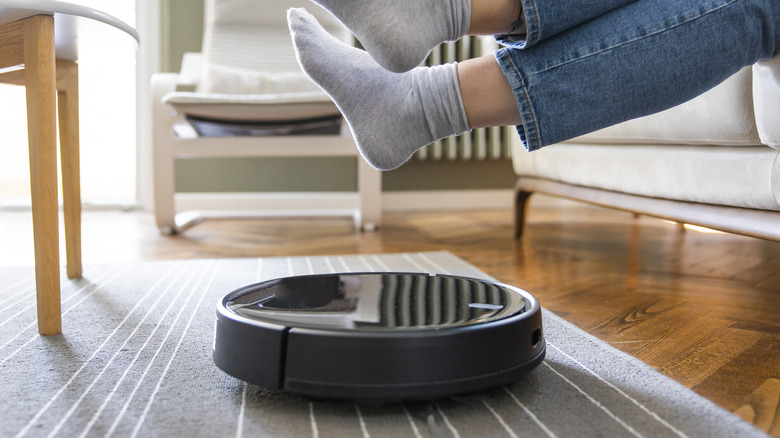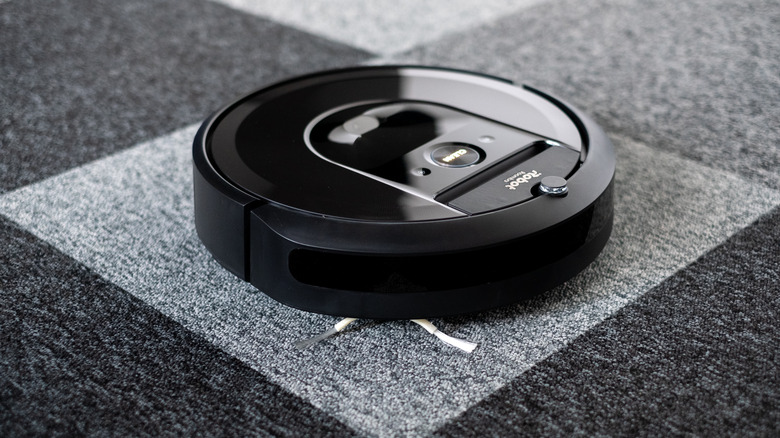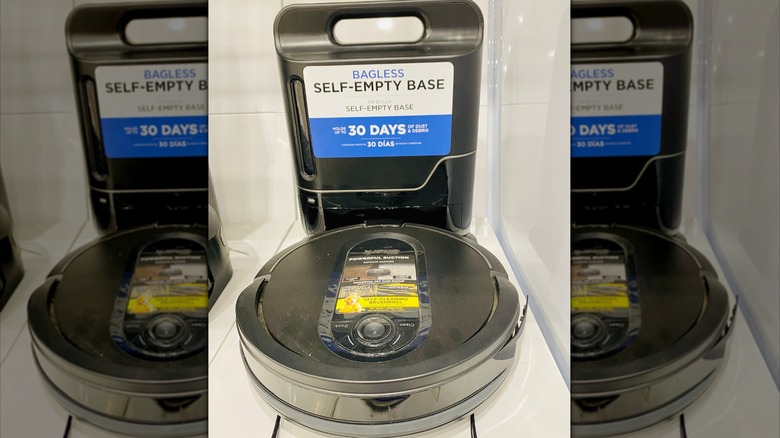Roomba Vs Shark: Which Vacuum Is Better Suited For Your Floors?
We may receive a commission on purchases made from links.
If you've considered the things you should know before buying a robot vacuum and decided that one is right for your home, you've most likely come across both Roomba and Shark models. Both offer similar features like self-emptying capabilities, mop settings, and the ability to connect to smart home devices like Alexa or Google Assistant. However, the two brands also have many differences, and choosing the right one for your specific floors is crucial. Fortunately, we've put together this guide to help you make an informed decision before purchasing your robot vacuum. Overall, if you've got mostly carpet or lots of rugs, a Roomba may be ideal. Otherwise, if you have all hard floors like wood and tile and very few area rugs, you may want to choose a Shark vacuum.
As stated, these two brands have some differences. Roombas are actually made by the brand iRobot, which released its first robot vacuum back in 2002 and has continued to only focus on these specific devices. However, Shark also makes regular vacuums, as well as other devices and announced the release of its first robot vacuum in 2017. While this means that Shark may have fewer options, the vacuums are also generally quite a bit cheaper than iRobot's offerings, making them ideal for the budget-conscious consumer. Discover more tips for choosing the right device for your specific floors.
Roomba may be ideal for carpeting and rugs
When choosing the best robot vacuum for your floor type, know that Roombas are typically very good at cleaning carpets, as they have a strong suction that can pull debris out of the fibers. This is true for both low and high pile carpets and rugs. However, it's likely that all of your floors aren't carpeted but that some are also wood or tile — and that's where some Roomba models really shine. They can easily detect the floor type and adjust their settings accordingly. For instance, the Roomba Combo j9+ is both a vacuum and mop. When on a hard floor, it can vacuum and mop simultaneously. Once it passes over to a carpet or rug, it will retract the mop and just vacuum the surface.
In comparison, the Shark Matrix Plus 2-in-1 is a very similar option that also comes with both vacuum and mop features. However, this device requires you to map out where your carpets and rugs are on the app, and some claim that it doesn't perform as well on carpets as the Roomba. Furthermore, this device cannot vacuum the floor while the water tank for the mop is attached — and you have to manually switch between these attachments. Therefore, if you're looking for convenience and the best cleaning capabilities, Roomba will be ideal on carpets.
Shark will save you money if you have hard floors
On the other hand, if you have mostly hard floors and not many rugs, a Shark model may be your best bet. The Shark Matrix Plus 2-in-1 mentioned above is effective at cleaning hard floors and very good at spot-mopping areas that may need a bit more scrubbing. This model is also quite cheaper than similar options from iRobot like the Roomba Combo j9+ ($480 versus $1,000 when both are on sale). To be clear, we're not saying that a Roomba would be a bad option for those with tile and wood floors. Instead, because the two options perform very similarly on hard floors, going with the cheaper vacuum might be the wisest choice.
At the same time, if you're just looking for a basic robot vacuum for hard floors, check out both Roomba and Shark options. The iRobot Roomba Vac Robot Vacuum Q011 currently costs $170 on Amazon and comes with lots of great features like sensors to keep it away from stairs and the ability to be programmed to a specific cleaning schedule. In comparison, the Shark AV2001 AI Robot Vacuum also costs $170 on Amazon, but, while it has some of the same features, you have to set no-go zones on the app before using. Overall, to avoid mistakes everyone makes when buying vacuum cleaners, consider all your options carefully so that you choose the best robot vacuum for your specific needs and budget.


